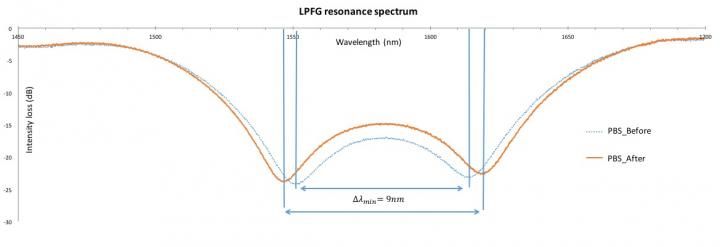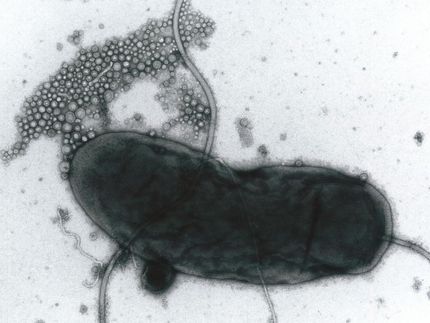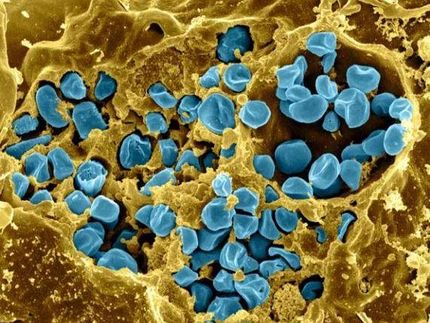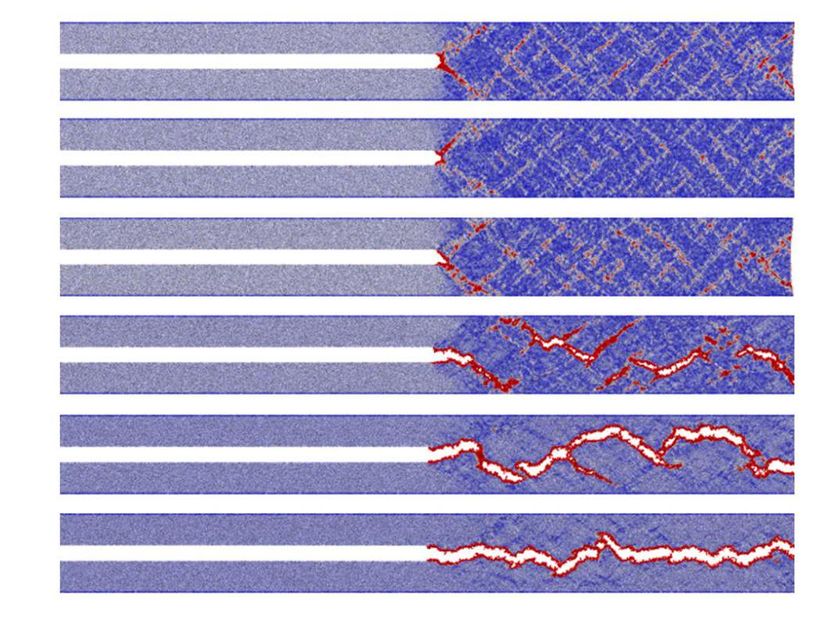New Sensor Could Help Fight Deadly Bacterial Infections
Scientists have built a new sensor that can detect the potentially deadly E.coli bacteria in 15-20 minutes, much faster than traditional lab tests. E.coli can be transmitted in contaminated food and water, posing particular risks to children and the elderly. In the late spring of 2011 a serious outbreak of E.coli bacteria sickened thousands of people in Germany and killed more than 50.

The graph shows the shift of the sensor spectrum after catching bacteria.
Dr. Wojtek J. Bock
A team of researchers from the Photonics Research Center at the University of Quebec in Outaouais, Canada, under direction of Professor Wojtek J. Bock and collaborators from the Indian Institute of Technology Kanpur , have built a new sensor that can quickly and cost-effectively detect E.coli over a wide temperature range.
"Using currently available technologies, which are mostly based on amplification of the sample, it takes several hours to days to detect the presence of bacteria. A fast and accurate detection alternative is, therefore, preferable over the existing technology," said Saurabh Mani Tripathi, a physicist at the Indian Institute of Technology Kanpur, Uttar Pradesh, India. "Faster tests for the bacteria could lead to faster treatment of patients, as well as to cheaper and easier environmental monitoring," he said.
The new sensor uses bacteriophages — viruses that can naturally latch onto and kill bacteria. The viruses are bonded to the surface of an optical fiber and will grab E.coli bacteria from a sample and keep them attached. When a beam of light strikes the surface, the presence of E.coli shifts the wavelength in a telltale sign of bacterial contamination.
One of the challenges of using optical fibers for bacteria detection is that temperature changes can alter the optical properties of the materials. Sensors are therefore often designed to work at a particular temperature and give inaccurate readings if the sample gets much hotter or colder.
Tripathi and his colleagues overcame this challenge by adding an additional optical component and in effect canceling out temperature-induced shifts. Their device is temperature insensitive over an approximately 20-degree Celsius / 68-degree Farenheight range, starting at room temperature and going up to 40-degrees Celsius / 104-degrees Farenheight.
The temperature insensitivity makes the sensor more practical for outdoor applications, like on-site monitoring of water reservoirs, Tripathi said. He also noted that the food industry and pathology labs are other possible users of the new sensors. The sensor can be modified to detect other strains of bacteria by changing the bacteriophage.
The research group is currently collaborating with Security and Protection International, Inc., a Canadian company, to explore commercialization of their device. Bock said that costs are hard to estimate at this stage of the research, but that the team hopes to deliver portable units for a few thousand dollars.
"Pathogenic bacterial infection is one of the biggest causes of death, and a fast response time is much needed for timely detection and subsequent cure of bacterial infection," Tripathi said. "I'm excited by the very low time [our sensor needs] to accurately detect the presence of E.coli bacteria in water collected from environments at different temperatures."
Original publication

Get the analytics and lab tech industry in your inbox
By submitting this form you agree that LUMITOS AG will send you the newsletter(s) selected above by email. Your data will not be passed on to third parties. Your data will be stored and processed in accordance with our data protection regulations. LUMITOS may contact you by email for the purpose of advertising or market and opinion surveys. You can revoke your consent at any time without giving reasons to LUMITOS AG, Ernst-Augustin-Str. 2, 12489 Berlin, Germany or by e-mail at revoke@lumitos.com with effect for the future. In addition, each email contains a link to unsubscribe from the corresponding newsletter.

























































